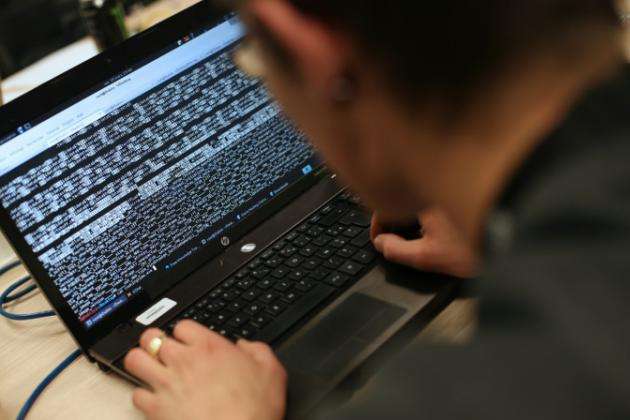Surge in Cyberattacks on Bank Customers: Meezan Bank Urges Caution for Card Users
|
Getting your Trinity Audio player ready...
|
In recent weeks, bank customers have faced an alarming increase in cyberattacks, particularly affecting those who use debit and credit cards for online transactions. Customers of Meezan Bank, a prominent financial institution in Pakistan, have reported unauthorized charges on their accounts, with transactions taking place on various websites without their knowledge or consent. This surge in cybercrime has raised concerns over the security of online banking, especially as users rely on digital payment methods more than ever.
Meezan Bank’s Response to Cyberattack Surge
To address this rising issue, Meezan Bank has issued a public advisory, urging its customers to take extra precautions when conducting banking transactions online. The advisory emphasized the need to avoid untrusted websites, refrain from using public Wi-Fi for banking activities, and stay vigilant against phishing attacks that seek to steal personal information.
What Happened: Customer Experiences of Unauthorized Charges
A notable incident highlighting the scale of these cyberattacks occurred when a Meezan Bank customer discovered unauthorized transactions on their debit card. The individual found that their card had been charged a total of Rs1.4 million on various websites, including Facebook, using Malaysian currency. Despite never having used their card for online transactions, the customer was a victim of cybercrime.
This particular incident was reported by Nouman Younas, the Co-founder of AwamiWeb, who filed a fraud complaint with the bank. While this case is concerning, it is just one of many instances where customers have had their bank cards compromised through unknown online channels.
The Root Causes of the Surge in Cyberattacks
Data Breach or Customer Trickery?
According to Dr. Affan A Syed, a cybersecurity expert, there are two main factors contributing to the increase in cyberattacks on bank customers: data breaches and customers unknowingly revealing personal information to scammers.
Pakistan, in particular, has become increasingly vulnerable to such cyber threats, as evidenced by a similar incident involving Allied Bank customers. These attacks usually occur when customers unknowingly share sensitive data with malicious third parties.
Exploiting Trust and Using Seemingly Harmless Information
Cybercriminals often exploit the trust that users place in certain websites, especially international ones. It’s important to note that attackers don’t always require customers to input credit card details. In many cases, seemingly harmless information like phone numbers, national ID card numbers, or email addresses can be enough to compromise a person’s data. Once in the hands of hackers, this data is often sold on the dark web, where it can be used to bypass security systems.
Scammers also use a variety of tactics to deceive users. One common method involves “honey traps,” where victims are enticed into clicking on a link that leads to a malicious website. Once the victim clicks the link, their data is exposed to the attackers, who can then use it to carry out fraudulent transactions.
The Dark Web and OTP Scams
Another common tactic used by cybercriminals is phishing for one-time passwords (OTPs). These scams trick individuals into revealing their OTPs, which are often required for completing online banking transactions. When attackers get access to this sensitive information, they can bypass security and initiate unauthorized transactions.
Dr. Syed also mentions that specific banks could be targeted if a dataset related to the bank is sold on the dark web. This could be due to a data breach at the bank or through an insider leak. Until a thorough investigation is conducted, the exact cause remains unclear.
Meezan Bank’s Reassurance to Customers
In response to these widespread concerns, Meezan Bank has moved quickly to reassure its customers. The bank’s advisory clearly states that rumors regarding a data breach at Meezan Bank are completely false. It further emphasizes that the bank is PCI compliant and all cards issued by Meezan Bank are EMV and 3D Secure compliant, ensuring the safety of customer data.
Meezan Bank continues to assure its customers that there has been no security breach within the institution, and their data remains fully protected. However, the bank strongly advises its customers to follow essential security protocols when using their cards for online transactions.
Precautionary Measures to Protect Online Card Usage
Meezan Bank has outlined several precautionary measures that customers should follow to avoid becoming victims of cybercrime. These measures include:
- Avoid Using Untrusted Websites: Only shop or make transactions on trusted and verified e-commerce platforms. Be cautious of unfamiliar sites.
- Do Not Use Public Wi-Fi: Avoid accessing your bank account or conducting any financial transactions while connected to public Wi-Fi networks.
- Stay Alert to Phishing Attempts: Be wary of unsolicited emails, messages, or phone calls asking for personal information such as card details or OTPs. Even if the message appears to come from a legitimate source, always verify its authenticity.
- Report Lost or Stolen Cards Immediately: If your card is lost or stolen, notify your bank immediately so that any fraudulent transactions can be blocked.
How Meezan Bank Handles Disputed Transactions
Meezan Bank has assured customers that all disputed transactions related to unauthorized e-commerce charges will be handled under the chargeback mechanism. The bank is committed to reimbursing customers who report such unauthorized transactions, and it is working diligently to ensure that these customers receive compensation as quickly as possible.
The chargeback process allows customers to challenge and reverse fraudulent transactions, ensuring that they are not held liable for unauthorized charges on their accounts. Meezan Bank is actively reviewing and processing these claims, prioritizing customer compensation.
Conclusion: Staying Safe in the Digital Age
The rise in cyberattacks on bank customers is a stark reminder of the importance of cybersecurity in today’s digital age. As more people rely on online banking and e-commerce platforms, it is crucial to remain vigilant and take proactive steps to protect personal information.
Meezan Bank’s advisory is a timely reminder for its customers to exercise caution and adopt safe online banking practices. By following the recommended security measures, customers can significantly reduce their chances of falling victim to cybercrime.
Frequently Asked Questions (FAQs)
1. What should I do if I notice unauthorized transactions on my card?
If you notice unauthorized transactions on your card, immediately report it to your bank’s fraud department. They will guide you through the process of disputing the charges and investigating the issue.
2. Is Meezan Bank’s online security compromised?
No, Meezan Bank has confirmed that there has been no data breach or security compromise at the bank. They are PCI certified, and all cards are EMV and 3D Secure compliant, ensuring customer data is safe.
3. Can scammers steal my information without me giving them my card details?
Yes, scammers can exploit other information like your phone number or email address, which can sometimes be found on the dark web. Always be cautious about what personal information you share online.
4. How can I protect my card information while shopping online?
Only shop on trusted websites, avoid using public Wi-Fi for transactions, and be cautious of phishing attempts. Additionally, use two-factor authentication wherever possible.
5. What is the chargeback process for disputed transactions?
The chargeback process allows you to challenge fraudulent transactions made with your card. If a dispute is filed, the bank investigates the issue and reimburses the affected customer if the charge is deemed unauthorized.
SEE ALSO
https://skipper.pk/2024/12/20/bagasse-based-ipps-agree-revised-tariffs-rs238-billion-savings/




